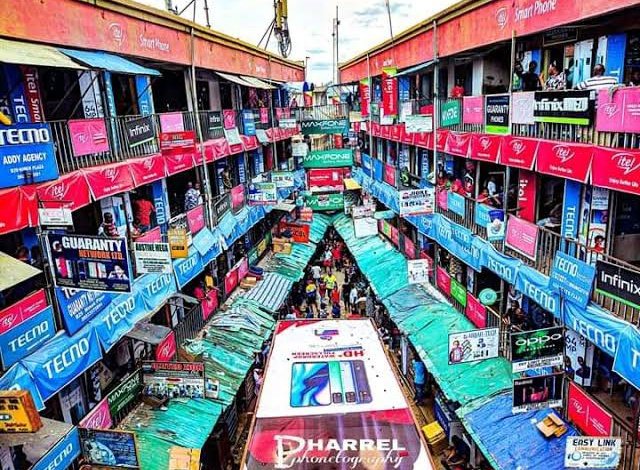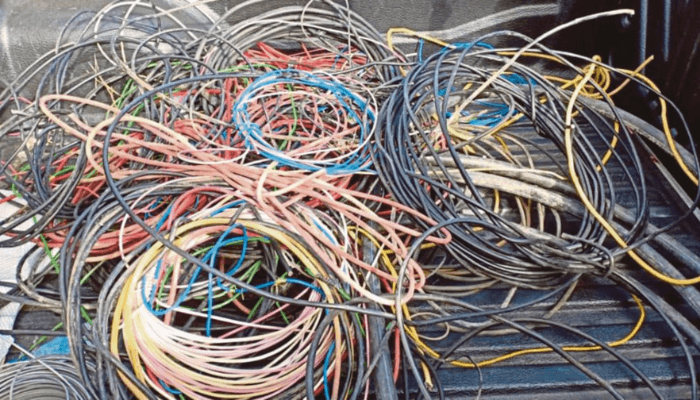The Nigerian Conservation Foundation declares that it is prepared to offer real answers to the plastic issue through straightforward and flexible eco-friendly tactics as the world struggles to combat the threat of plastic pollution.
According to Vanguard, this was revealed in a statement released on Saturday in Lagos by the NCF’s communication manager, Mr. Oladapo Soneye, in advance of the World Environment Day commemoration.
Soneye claimed that WED, which had been observed annually on June 5 since 1973 and is sponsored by the United Nations Environment Programme, is the largest worldwide day for the environment.
The WED, he continued, has developed into the biggest platform in the world for environmental awareness.
According to him, the United Nations Environment Programme urged for individuals and the government to make concerted efforts to end plastic pollution.
One million plastic bottles are bought globally every minute, according to Soneye, while up to five trillion plastic bags are used annually.
According to Soneye, “Overall, half of the plastic manufactured is used only once and thrown away.
He claimed that the leading environmental NGO, NCF, joins the rest of the globe in commemorating Globe Environment Day in 2023 by planning days of events to inform people and offer workable solutions to plastic pollution.
He included upcycling, beach/community clean-up efforts, and school recycling initiatives as some of the primary recommended actions.
“These would be carried out with the intention of safeguarding our environment by reducing the number of plastics entering our landfills and fostering environmental education.
One million plastic bottles are bought globally every minute, according to Soneye, while up to five trillion plastic bags are used annually.
According to Soneye, “Overall, half of the plastic manufactured is used only once and thrown away.
He claimed that the leading environmental NGO, NCF, joins the rest of the globe in commemorating Globe Environment Day in 2023 by planning days of events to inform people and offer workable solutions to plastic pollution.
He included upcycling, beach/community clean-up efforts, and school recycling initiatives as some of the primary recommended actions.
“These would be carried out with the intention of safeguarding our environment by reducing the number of plastics entering our landfills and fostering environmental education among young Nigerians.
“Schools play an important role in promoting environmental sustainability in their neighborhood, they assist kids develop a passion for the environment and can help them remember the need of conservation.
“Recycling, for example, significantly lowers the amount of plastic waste in the community while simultaneously raising environmentally conscious children, according to Soneye.”
He promised to provide enormous sorting bins for plastic waste collected from the neighborhood and school.
He stated that regular recycling pick-up would take place, and a similar amount from the pick-up would be provided to the schools for the purchase of school supplies.
Recycling in schools, according to the communication manager, will encourage kids to take an interest in the planet.
He pointed out that the Beach/Community Clean-up was a reasonably simple and enjoyable exercise that served as a vehicle for raising awareness of plastic waste.
According to Soneye, “the more people who participate in the clean-up, the more environmentally conscious they become because they are fully aware that their plastic waste if improperly disposed of, ends up in water bodies and harms aquatic wildlife.”
“Plastic wastes, including PET bottles, plastic bags, disposable plates and spoons, straws, and other items, are everywhere around us. These items clog drainage systems, lead to floods during rainy seasons, and serve as ideal mosquito breeding grounds.
“Through practices including littering, inappropriate waste management and disposal, industrial activity, construction, and illegal dumping, plastic debris makes its way from the land into the ocean.
“There must be a systemic change to stop the flow of plastic waste ending up in our environment,” stated the Director-General of NCF, Dr. Joseph Onoja.
“Less than 10% of the seven billion tonnes of plastic waste that have been produced globally to date has been recycled.
“Plastic garbage can linger in the ecosystem for millennia, whether it is in a river, the ocean, or on land.”
According to recent studies, microplastics have been discovered in human lungs, livers, and kidneys. “Most plastic items are not degradable as they instead break down into smaller particles called microplastics,” he stated.










